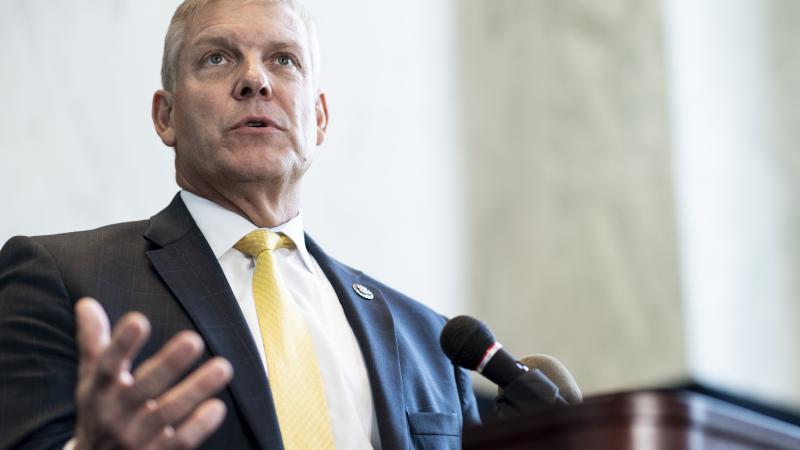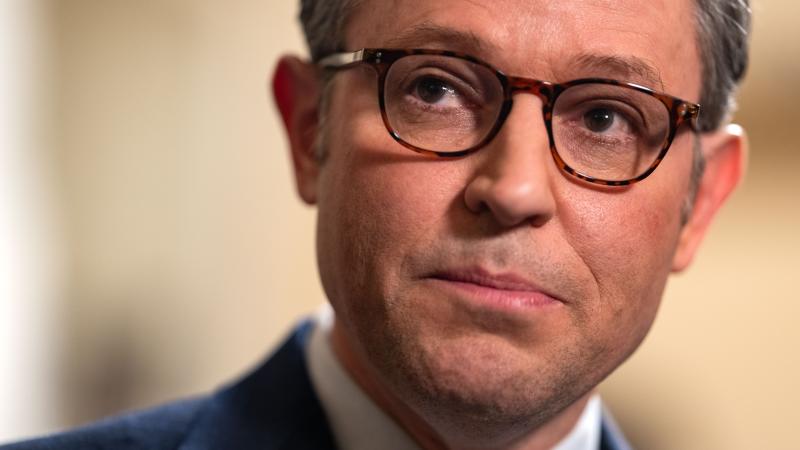Virginia poised to mandate 'cultural competency' evaluation, black history training for teachers
History, social science teachers will be required to take additional training in African-American history.
A pair of bills that recently cleared the Virginia state legislature will mandate that all teachers in the state undergo "cultural competency" training, with history and social science teachers required to undertake additional training regarding African-American history.
The bills, one in the state House of Delegates and one in the Senate, would add "cultural competency" evaluations to the standard slate of regular evaluations to which teachers in the commonwealth are subject and require "each teacher and any other school board employee holding a license issued by the [state Board of Education] to complete cultural competency training, in accordance with guidance issued by the Board, at least every two years."
"Every person seeking initial licensure or renewal of a license shall complete instruction or training in cultural competency," the law states elsewhere.
The law also directs that "every person seeking initial licensure or renewal of a license with an endorsement in history and social sciences shall complete instruction in African American history, as prescribed by the Board."
The legislation does not define "cultural competency," leaving its ultimate definition subject to "guidance" issued by the state education board, nor does it clarify the scope or content of "African American history" that history teachers will be required to learn going forward.
State Sen. Mamie Locke told Just the News that the state's African American Education Commission "prioritized cultural competency as an important skill to ensure the holistic teaching of Virginia's diverse and complex history."
"Cultural competence is simply defined as being aware of one's own cultural identity and views about difference, and the ability to learn the varying cultural and community norms of students and their families," Locke said.
"I would explain that this legislation is important because there are real circumstances where classroom teachers have demonstrated insensitivity to black and brown children in their classrooms, either through assignments or comments," she continued. "For example, a teacher giving an assignment requiring students to do a family tree going back six generations. For African-Americans whose ancestors may have been slaves, families ripped apart, sold, etc., could this teacher not see the difficulty with this assignment? Or the teacher said to an honors class, 'That's why you all are going to be working at 7-Eleven' and didn’t understand why the students took offense. Or the teacher who said to her class they were all attending a 'ghetto' school.'
"Being culturally competent will provide the kind of pedagogical training that will broaden the base of understanding and help teachers, counselors, administrators and others better understand and accept the difference of those they are working with each day. If we accept and understand differences, we build a better society."
Democratic Gov. Ralph Northam is expected to sign the provisions into law, likely this week.
'Cultural competence' an increasingly popular concept in pedagogy
The concept of "cultural competence" is not novel to the Virginia bills; it's an idea that's been gaining currency in many major industries and institutions in recent years.
The American Psychological Association states that the term is "loosely defined as the ability to understand, appreciate and interact with people from cultures or belief systems different from one's own," which they claim has been "a key aspect of psychological thinking and practice for some 50 years."
The Georgetown University Health Policy Institute, meanwhile, argues that "cultural competency" in a healthcare setting "is defined as the ability of providers and organizations to effectively deliver health care services that meet the social, cultural, and linguistic needs of patients."
Georgetown in its literature does not offer a clear definition of how healthcare providers might leverage "cultural competency" to achieve better health outcomes. The university does propose some straightforward ideas, such as "recruit and retain minority staff" and "expand hours of operation." At the same time, other suggestions are ill-defined, such as "provide training to increase cultural awareness, knowledge, and skills" and "incorporate culture-specific attitudes and values into health promotion tools."
The concept has found particular favor in educational environments, with educators and administrators often seeking to rectify alleged historical and present-day wrongs.
The Oregon State Department of Education this month, for instance, announced a "pathway to math equity micro-course," one in which participating math instructors would "learn key tools for engagement, develop strategies to improve equitable outcomes for Black, Latinx, and multilingual students."
The Madison, Wisconsin Metropolitan School District last year, meanwhile, reportedly proposed that layoffs of instructors should "take into account a staffer’s qualifications," among which were "cultural competency." The district on its website claims to "provide staff development to build cultural competence and culturally relevant practices."
















